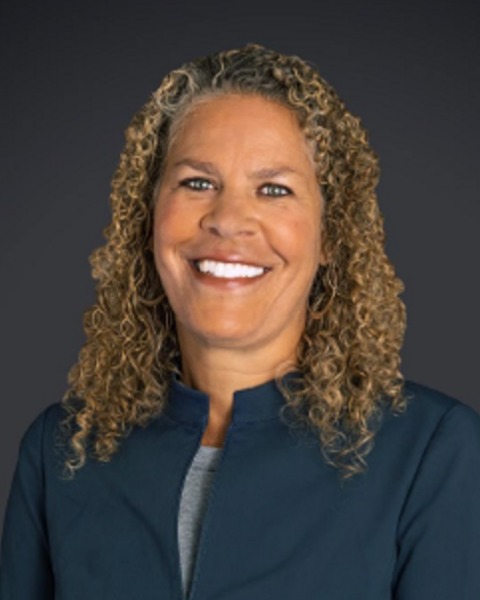News
Dr. Chinazo Cunningham Receives Brinkley Smithers Distinguished Scientist Award
Chinazo Cunningham, MD, MS, FASAM, commissioner of NYS Office of Addiction Services and Supports (NYS OASAS) in Albany, New York, is this year’s recipient of ASAM’s Brinkley Smithers Distinguished Scientist Award. The award is given in recognition of a physician’s highly meritorious contributions in advancing the scientific understanding of addiction, its prevention, and treatment options.

“I'm honored to have been chosen,” Dr. Cunningham said. “It’s a way for me to look back at my career and see how I've been able to influence the field of addiction medicine and also help train the next generation to really embrace incorporating addiction medicine into their work. The field has expanded and moved in a really positive direction. I'm happy to have been part of that and to also continue to have a positive influence on the care that's delivered and on the lives of people who have substance use disorders (SUD).”
Dr. Cunningham started treating addiction in the late 1990s after being trained to provide care for patients living with HIV in the Bronx. “After understanding how to improve HIV outcomes for the community that I was serving, what I really began to understand was addiction was the root of a lot of the issues and that in order to treat HIV, I had to address the addiction,” she said. “For me, that was the beginning of seeing how important treating addiction was in terms of thinking about all of the other conditions that my patients and their family members and communities were experiencing.”
Prior to joining OASAS, Dr. Cunningham served as the executive deputy commissioner of mental hygiene at the New York City Department of Health and Mental Hygiene. She also was a practicing physician at Montefiore Health System and a professor of medicine, family and social medicine, and psychiatry and behavioral sciences at the Albert Einstein College of Medicine.
Dr. Cunningham has focused on patients with SUDs for more than two decades, conducting research, providing care, and creating programs. She led one of the first clinics in New York City that integrated buprenorphine into primary care. Dr. Cunningham has trained hundreds of primary care physicians to treat SUDs and has also led several research studies and published numerous research articles that focus on such treatment.
While working in addiction medicine can be challenging at times, Dr. Cunningham said it remains incredibly rewarding. “Seeing people be able to turn around their lives in ways they never imagined is incredibly powerful,” she said. “I feel like I can have a tremendous impact on people's lives, their families, and in their communities. That's been a driving force. The second thing that has been powerful is training the next generation and helping them see how rewarding treating addiction can be.”
One story that sticks with Dr. Cunningham involves a patient with whom she’s worked for about a dozen years. After he visited her and started buprenorphine for the first time, his life completely changed as he recognized how his drug use had
harmed his relationships, his finances, and his job. After some time in treatment, the man was able to get a job promotion, save a down payment for a home, and improve his relationships with his family and friends.
“There were
all these aspects of his life where he had these accomplishments that were beyond what he dreamed was even possible,” she said.
Dr. Cunningham said a great deal of work still remains to be done to address the stigma tied to addiction and its treatment, but she’s hopeful for the future. “People are beginning to see addiction as a chronic medical condition, just like many of the other chronic medical conditions that exist,” she said. “Seeing it through that lens I think will help expand treatment not only in specialty treatment centers but across the healthcare system, as well.”
She encourages medical students to pursue a career in addiction medicine, which is a rapidly growing and increasingly important field. “It's also a field in which we have a lot of work to do,” she said. “It’s a field that can be both challenging and incredibly satisfying and meaningful. Also, right now, we’re in one of the biggest crises that we have faced as a country and to be part of the solution to that crisis and to think innovatively about addressing addiction is really wonderful and impactful work.”
An important part of training the next generation, Dr. Cunningham added, is helping medical practitioners address the structural racism that exists regarding drug use and SUD treatment.
“Training the next generation and then watching them start addiction treatment programs or address addiction in policy has also been very powerful for me,” she said. Looking back on her career, Dr. Cunningham emphasizes the privilege of helping to build on the work that so many addiction medicine specialists have been doing for decades.
“My colleagues who work in addiction medicine have been amazing in terms of their advocacy and their passion and thoughtfulness about how to move the field forward,” she said. “It’s been such a pleasure to collaborate with so many people around the country – people who are really at the forefront of the field. Having them as thought partners and collaborators has really been wonderful.”
